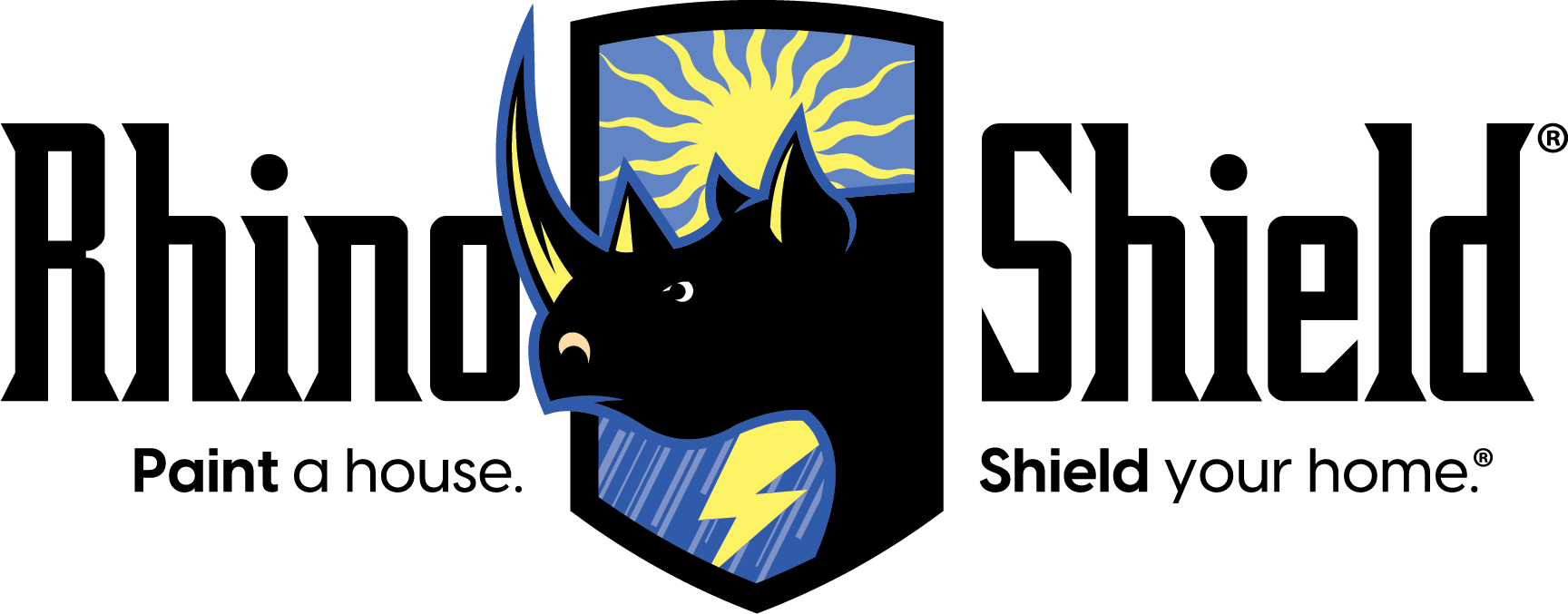
Starting a painting franchise can be an exciting and potentially lucrative venture, but it's essential to understand the costs involved before taking the plunge. At Rhino Shield, we offer a dealership model that is like a franchise. Because of this, we’re often asked, “What does it cost to start a franchise for painting?” and “What are the similarities and differences of the Rhino Shield Dealership Model compared to most painting franchises?” We’ll do our utmost to answer both questions honestly.
In this article, we will explore the various financial aspects of starting a painting franchise, including:
- Liquidity requirements
- Initial Franchise Fees
- Franchise Marketing Fees
- Equipment Investment
- Labor and Insurance costs
- Revenue Projections
Painting Franchise Initial Cost
One of the first considerations when starting a painting franchise is the initial investment required. The cost can vary significantly depending on various factors, including the franchise brand, location, and specific services offered. On average, the initial investment for a painting franchise typically ranges from $41,000 to $155,000.
Certain franchises may have initial liquidity requirements, ensuring that you have enough capital to withstand a slow start.
What is the Average Painting Franchise Fee?
Franchise fees are a critical component of financial commitment when starting a painting franchise. These fees can vary, typically falling within the range of 4% to 12% of your gross revenue. The exact percentage may depend on the level of support and services provided by the franchisor.
For instance, at the high end of this range (10-12%), the franchise may handle call answering services, appointment setting, CRM automation, and lead generation. Some franchisors may allow you to opt out of certain services to reduce your franchise fee, but some services and related fees are usually non-negotiable.
Who are the Top Painting Franchises?
Several well-established painting franchises have gained recognition in the industry. Some notable examples include:
Choosing a reputable franchise can offer several advantages, the most obvious being brand recognition, which allows your business to have better odds of growth starting out.
Do Painters Need to be Licensed?
In any state, you’ll need at least a local municipality business license to get started. Some markets, such as California, Nevada, and Florida, have strict licensing requirements that can be expensive and time-consuming to obtain. Compliance with these regulations may impact your startup timeline and costs.
For example, it took one of our Rhino Shield dealers located in northern California, nearly six months to obtain his licensing through the Contractor State License Board (CSLB).
In areas that have long licensing times, you may work with an existing contractor under their license. This may allow you to get started sooner but comes at an additional cost. This fee will vary from company to company but is usually a percentage of revenue per job.
What Are the Average Labor and Product Costs for a Painting Franchise?
Labor and Insurance are major expenses with any painting franchise operation and can vary greatly by market. Labor costs in Birmingham, Alabama will be very different than labor costs in New York City.
At Rhino Shield, our average labor costs are between 25 - 30% of a job and product costs of 13 - 15%, equating to Average Gross Margins of 62 - 55%.
What Insurance is Required to Operate a Painting Franchise?
Additionally, insurance requirements vary from state to state, and even at the local level. Understanding and meeting these insurance requirements is crucial for your business's legal compliance. Some common insurance expenses include:
- General Liability
- Workers Compensation
- Automobile
Painting Franchise Equipment Cost
Every painter, franchisee or not, needs equipment and supplies. Many franchisors will mandate specific types of equipment to maintain brand consistency, while others may require their franchisee to only buy through them for their initial startup and allow more flexibility in your equipment choices thereafter. Common Equipment Expenses include:
- Vehicle and/or a trailer (with branded wraps/signage for each)
- Tinting Equipment for Self-Tinting
- Spectrophotometer (color-matching hardware and software)
- Automatic Tinting Dispensers
- 1-5 Gallon Shakers
The franchisor might then offer discounts to incentivize continuous purchasing through their equipment and supplies network. These factors should all be considered when calculating expenses:
- Proximity to equipment suppliers
- Bulk purchases or pricing thresholds for purchase milestones met
- Shipping costs
What Training and Ongoing Support is Provided to a New Franchise Owner?
A successful painting franchise should provide comprehensive support to its franchisees, including:
- Pre-sales assistance
- A turnkey business model
- Ongoing operational, technical, sales, and marketing support.
At Rhino Shield, we run a dealer network that offers all the same training, business coaching, and marketing materials to help our dealers succeed. With our model, you get franchise-like support with none of the ongoing fees.
Your franchise should offer ongoing support, resources, and guidance on how to quote unique situations, such as large commercial jobs or projects with specific challenges. One example of this could be:
- Learning the proper way to price, schedule, and install a coatings system on a large condominium complex like the one featured in this article by Civil & Structural Engineer Media. Other considerations could include:
- Risk management issues to address
- Heavy equipment rental
- Draw schedule for payments to avoid cash flow issues
- Warranty considerations
Franchise operations should also help you avoid common pitfalls and teach you best practices from lessons learned over the years, such as:
- Why have franchisees in the past failed?
- What are the most common mistakes new painting franchise owners make with marketing?
- What are the most common mistakes new painting franchise owners make with scheduling and installation?
- How do new franchisees keep their customers satisfied post-installation?
Access to this knowledge can be invaluable as you navigate various customer demands, and a franchise should give you the benefit of immediate answers.
Franchise Brand Awareness
Some painting franchises may charge higher royalties if they have strong brand recognition and a national presence. However, this can also result in more business opportunities for franchisees, as the franchise will actively generate leads on their behalf. A franchise's success is often tied to the revenue generated by its franchisees, making them incentivized to provide support and generate business for you.
While some franchises may not offer exclusive territories, Rhino Shield has provided exclusive territories for more than two decades. We provide our dealers with a competitive advantage in their designated areas. Exclusivity is critical to your success when selling a premium branded coatings solution.
Home Improvement is a very fragmented landscape. According to IBISWorld Market Research, no contractor service holds more than a 5% market share, so aligning with a recognizable brand can be very valuable.
Who Pays for Marketing in a Franchise?
Marketing is a significant expense in any business, and painting franchises are no exception. The most important thing in any business model is leads. It doesn’t matter how good your business is, if you don’t have leads, you won’t have jobs. Many franchises will include a marketing fee that they collect each year via a Marketing Fund Statement. Some franchises charge a flat fee (usually 1 – 4% of total revenue), while others may not have a separate marketing and advertising fee. Typically, the variants are dependent on the level of marketing support provided.
Rhino Shield has been around for 20+ years. We’ve seen good businesses die because they couldn’t or wouldn’t invest in marketing at an appropriate level. Any initial painting operation should expect to continually invest 15 to 20% of its revenue into marketing. This will give you the best chance of growth. In our experience, over time, you can bring your marketing investment down to the low teens.
In addition to the franchise fees, you may need to allocate a portion of your budget for local marketing efforts. Some franchises will take care of all the marketing, even at the local level, while others may offer lead-generation services at a flat expense per lead.
How Much Money Can I Make with a Painting Franchise?
The average painting franchise revenue ranges from $750,000 to $1.8 million. For example, as reported in its 2022 Franchise Disclosure Document (FDD), CertaPro Painters had an Average Revenue per Franchisee of $1,848,138
At Rhino Shield, our 20+-year-old dealership network averages between $1.5 million to $4 million dollars in revenue.
Painting franchises report “average tickets”, or average revenue per paint job at $3,250 to $5,000. Net margins range from 12 - 30%, or $390 to $600 per job.
A Rhino Shield dealer’s average ticket ranges between $13,000 and $18,000, with net margins between 15-20%, or $1,950 - $2,600 and $2,700 - $3,600 per job.
To Conclude
Starting a painting franchise is ripe with the potential for a rewarding business opportunity, but it comes with various costs and considerations. From initial investments and franchise fees to ongoing expenses and support from the franchisor, understanding the financial aspects is crucial for your success.
You pay a premium to be a franchisee, but you get a level of support and brand awareness that justifies that price. At Rhino Shield, we understand this since we supply our dealers with a premium product at a premium price. It takes anywhere from $50,000 to $75,000 to get started with a Rhino Shield dealership. Check out our guide on what you can expect when starting up a Rhino Shield dealership.
If you’re interested in learning if a Rhino Shield dealership is right for you, you can connect with us here.

